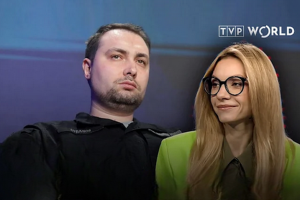Appointment of NABU auditors: the battle rages on…
Political analyst, Democratic Initiatives Foundation | On March 21 the Verkhovna Rada of Ukraine failed to support neither of the candidates for the post of member of the Auditing Commission of the National Anti-Corruption Bureau of Ukraine (NABU). 178 deputies voted in favor of Robert Storch as the Deputy General Inspector of the U.S. Department of Justice, while 202 voted in favor of the British private detective Nigel Brown. The same day a number of non-government organizations proposed to the Cabinet of Ministers of Ukraine a list of three candidates as auditors of the NABU among which the government can select one delegate to the auditing commission. The third member of the commission must be appointed by President Petro Poroshenko. |
Voting in the Verkhovna Rada was testimony to the stalemate in the struggle of the informal ruling coalition and the opposition forces composed of Samopomich, Batkivshchyna and certain deputies of the Petro Porosheko Bloc (PPB), who garnered the support of representatives of anti-corruption non-government organizations. In an attempt to appoint the little known Nigel Brown as a member of the auditing commission, the pro-presidential forces most likely had the aim of obtaining control over this commission and gaining legal grounds for the dismissal of the director of the NABU, who of late began showing greater independence from the president and his milieu.
There may be several scenarios of the further course of events. Much will largely depend on the behavior of Poroshenko, whose “quota” in the auditing commission could decide whether or not this body is capable of conducting truly independent audit of the NABU. On the one hand, given the resonance of this matter in society and the dissatisfaction of western partners of Ukraine with the attempts of the parliamentary majority to appoint a candidate that is loyal to it, Poroshenko could make Storch, who has the reputation of a professional and independent expert, his delegate in the commission. The third member of the commission delegated by the government will with a high degree of probability also be an independent figure, meaning that the composite of the commission will be balanced regardless of the decision of the parliament.
On the other hand, the desire to have a leverage over the leadership of the NABU through control over the auditing commission for Poroshenko could prevail over the risk of worsening relations with representatives of western states. Hence, the appointment of a candidate who is convenient for the president to sit on the commission will be corroborate such a scenario. Then the head of state will be able to use his influence on the parliamentary factions in order to prompt them to also select an auditor who is loyal to him. In any case, the behavior of the president will be a signal as to whether or not the ruling power is genuinely interested in the existence of an independent anti-corruption body.

 Olexiy Sydorchuk
Olexiy Sydorchuk






